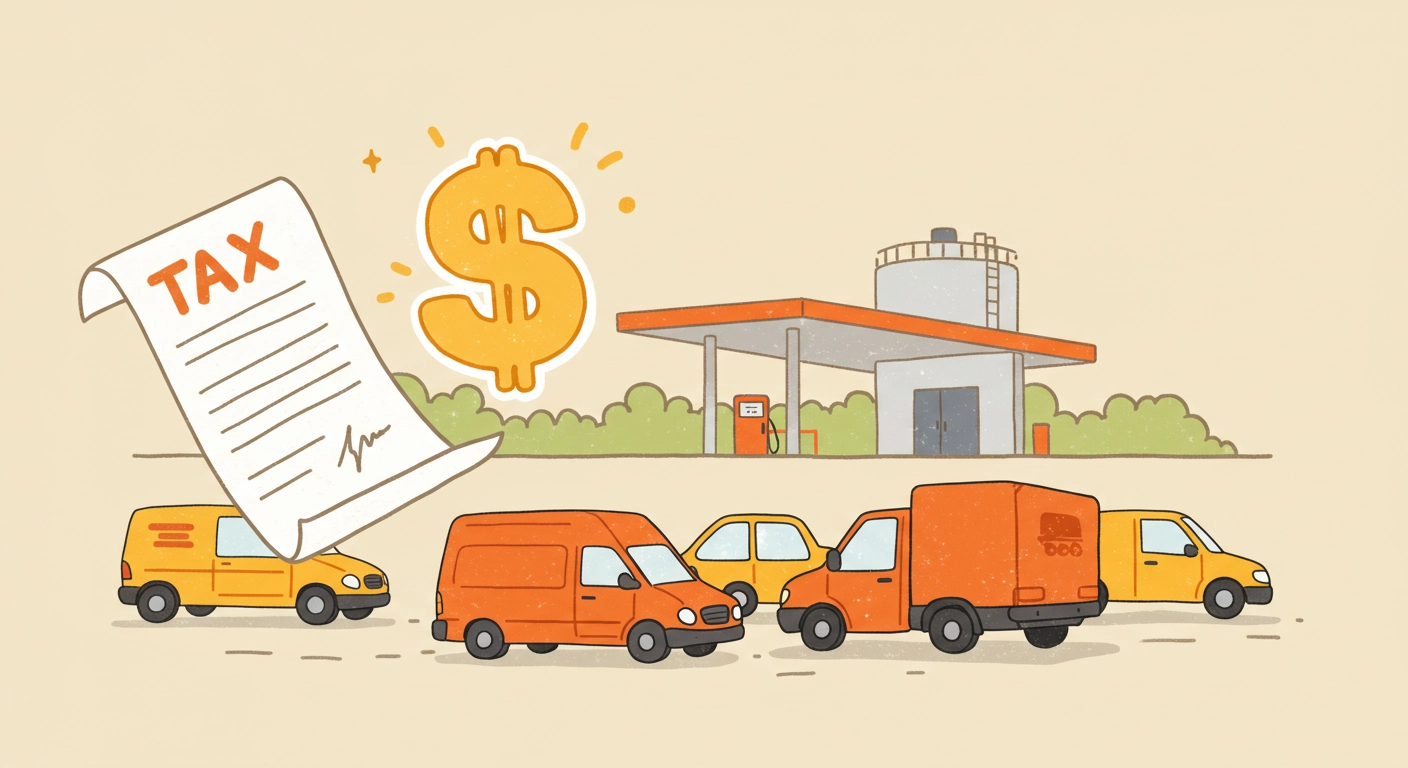What Are Fuel Tax Credits?

Fuel Tax Credits: A Complete Guide for Australian Small Business Owners
Maximise Your Tax Savings and Reduce Fuel Costs
As a small business owner in Australia, every dollar counts. With fuel prices fluctuating and operational costs rising, understanding how to leverage government incentives like Fuel Tax Credits (FTCs) can significantly improve your bottom line. This guide will explain what FTCs are, who qualifies for them, and how to claim them effectively.
What Are Fuel Tax Credits?
Fuel Tax Credits (FTCs) are a government rebate offered by the Australian Taxation Office (ATO) to businesses that use eligible fuels for commercial activities. When you purchase fuel, a portion of the price includes fuel excise tax (a federal tax on fuel). FTCs allow you to claim back part or all of this tax, effectively reducing your fuel expenses.
Example:
If your landscaping business uses diesel in machinery like excavators or tractors, you can claim a credit for the excise tax paid on that fuel.
Who Can Claim Fuel Tax Credits?
Eligibility depends on three key factors:
- GST Registration: Your business must be registered for GST.
- Eligible Activities: Fuel must be used for business purposes, such as:
- Operating heavy vehicles (e.g., trucks over 4.5 tonnes).
- Running machinery or equipment (e.g., generators, harvesters).
- Off-road activities in industries like agriculture, mining, or construction.
- Eligible Fuels: Common examples include diesel, petrol, LPG, biodiesel (B100), and blended fuels (e.g., E10, B20).
Not Eligible:
- Fuel used in light vehicles (under 4.5 tonnes) on public roads.
- Private use or stolen fuel.
How Fuel Tax Credits Work
The FTC system operates as a credit against your tax liability. Here’s how it works:
Step 1: Determine Eligible Fuel Use
Track how and where fuel is used. For example:
- On-road use: Heavy vehicles (over 4.5 tonnes) on public roads qualify for a lower credit rate due to road user charges.
- Off-road use: Machinery or vehicles operating on private property (e.g., farm equipment) attract higher rates.
Step 2: Calculate Your Claim
The credit amount depends on:
- Fuel type (e.g., diesel vs. LPG).
- Usage (on-road vs. off-road).
- Current ATO rates, which are adjusted biannually (February and August).
Example FTC Rates (August 2024 – February 2025):
| Fuel Type | On-Road Heavy Vehicles | Off-Road/Other Uses |
|---|---|---|
| Diesel/Petrol | 20.1¢/L | 50.6¢/L |
| LPG (Duty Paid) | 0¢/L | 16.5¢/L |
| Biodiesel (B100) | 0¢/L | 15.2¢/L |
| Source: ATO Fuel Tax Credits Guide |
Use the ATO’s Fuel Tax Credit Calculator to simplify calculations.
Step 3: Lodge Your Claim
Submit your FTC claim through your Business Activity Statement (BAS). Ensure you:
- Keep records for five years (e.g., receipts, logbooks, GPS data).
- Claim within four years of the BAS lodgement date.
Recent Changes to Fuel Tax Credits (2024–2025)
Stay updated on these key changes:
- Road User Charge Increases:
- Rises by 6% annually for three years (2023–2026), reducing FTC rates for on-road heavy vehicles.
- Example: Diesel used on-road dropped from 28.8¢/L (2023) to 30.5¢/L (2024).
- CPI Indexation:
- Rates are adjusted twice yearly (February and August) to reflect inflation.
- Biodiesel (B100) Adjustments:
- Off-road credits for B100 increased to 15.2¢/L (August 2024).
Common Mistakes to Avoid
- Incorrect Classification:
- Mixing up on-road and off-road use can lead to under- or over-claiming.
- Poor Record-Keeping:
- Incomplete logs or missing receipts may result in denied claims.
- Missing Deadlines:
- Claims older than four years are ineligible.
5 Tips to Maximise Your FTC Claims
- Use Digital Tools:
- Track fuel usage with apps or GPS systems to simplify record-keeping.
- Regularly Review Rates:
- Check the ATO website every February and August for rate updates.
- Separate Business and Personal Use:
- Only claim fuel used for commercial activities.
- Consult a Tax Professional:
- An accountant can help navigate complex claims or audits.
- Audit-Proof Your Records:
- Maintain logs showing dates, odometer readings, and purposes of trips.
FAQs About Fuel Tax Credits
Q: Can I claim FTCs for fuel used in my ute?
A: Only if the ute is over 4.5 tonnes and used for on-road business activities.
Q: What if my claim is denied?
A: Review the ATO’s reasons, correct errors, and resubmit. Seek professional advice if needed.
Q: Are electric vehicles eligible for FTCs?
A: No—FTCs apply only to fuels with excise taxes (e.g., diesel, petrol).
Final Thoughts
Fuel Tax Credits are a powerful way for small businesses to reduce operational costs. By understanding eligibility criteria, staying updated on rate changes, and maintaining accurate records, you can unlock significant savings.
Need Help?
Consult a tax advisor or use the ATO’s resources to ensure compliance and maximise your claims.
Disclaimer: This blog provides general information only. For advice tailored to your business, consult a registered tax professional.
Gimbla Contributor | January 28th, 2025